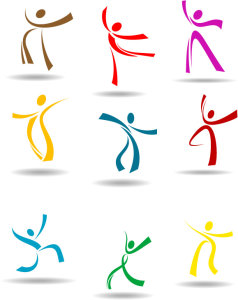Five Reasons Top Athletes Work With a Sport Psychologist
It was a surprising moment. After winning the NBA title with the L.A. Lakers, forward Ron Artest (now known as Metta World Peace) made it a point to thank his doctor for the psychological help that raised his game and kept him focused despite tremendous pressure. Yet this revelation came as no surprise to athletes around the globe who are seeing their performance improve with the help of a sport psychologist.
Even naturally talented athletes can reach a point where their performance peaks and they can’t seem to surpass prior goals. Why is that? Because, as both athletes and experts will tell you, performance in sports is at least 80% mental. In every sport, one’s “mental game” is as important as physical effort in achieving goals and winning. That’s what sport psychologists do, they help athletes with their mental game.
How can an athlete’s mental game impact the outcome of a match or make a difference in the final score? Here are just a few ways:
- Improved focus. The ability to tune out distractions, to learn how and what to pay attention to, is part of a solid mental game. Sport psychology is not about giving an athlete more to think about, but rather learning a flow of thoughts that improves concentration in the right areas, leading to a greater sense of confidence, increasing that feeling of “being in the zone”.
- Goal setting. Beyond strategy, effective goal setting can make the difference between success and failure. Many athletes choose unrealistic goals, or goals that are either too broad or too specific to actually be helpful and instead end up working against them.
- Overcoming plateaus. There is a myth that can plague even the best of athletes: that practice alone is sufficient to improve sport performance. Not so. Factors such as staying relaxed under pressure, developing effective routines, and mental “toughness” in sports are just as big a part of one’s game as physical preparation.
- Removing barriers (e.g., eliminating “choking”). Many athletes perform on a stellar level in practice but can’t seem to achieve the same results on game day or in competition. In my practice I have worked with kids, adults, collegiate athletes, and professionals to tackle barriers to success. We address anything from controlling anxiety, keeping stress and anger in check, and using mental skills such as “self-talk” and “sports imagery” to calm emotions both on and off game day. Removing barriers helps you to stay “in the moment”, a key to improved performance in any sport.
- Increasing confidence. Confidence is not reserved for elite athletes or those who out rank their opponents. It is not measured in the absence of mistakes. Confidence is a state of mind.
Whether a novice or pro, these sport psychology skills can be effective game changers in sports performance.
